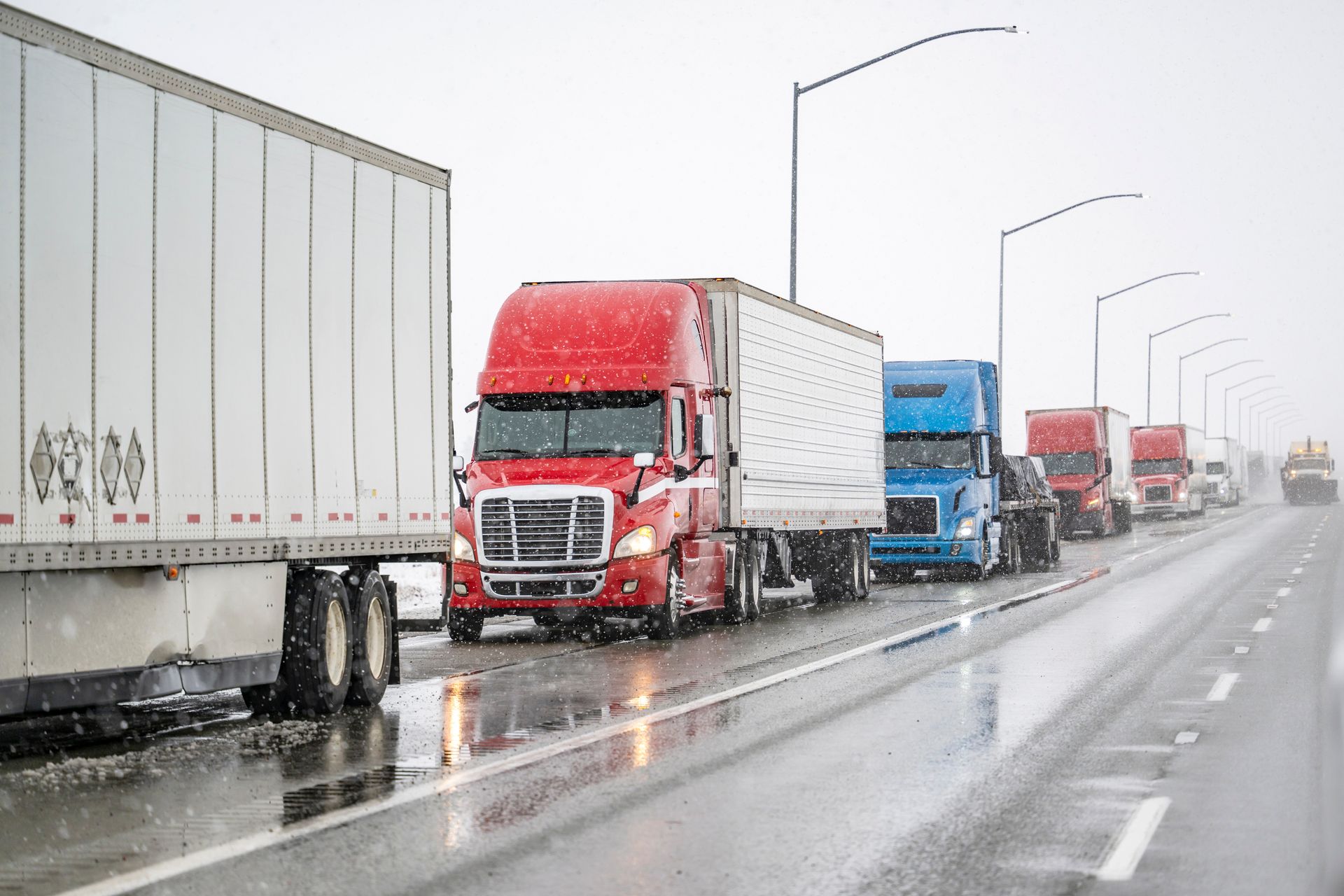Winter Driving Tips for Truck Drivers
As the temperatures dip and the first snowfall arrives, winter driving conditions become a considerable concern for commuters, especially truck drivers who rely on safe transportation to make a living.
Truck driving
can be a challenging career on roads and highways, particularly when the weather worsens. So let's explore what to know when driving a truck in the winter with these handy winter driving tips.
Watch for Black Ice
Black ice forms when wet pavement freezes, often from rainfall during the day. It creates a colourless sheet of crystalline ice that is nearly impossible to discern from the road, and a reduction in visibility makes an already dangerously slippery situation much worse.
If temperatures dip below freezing and it rains in the daytime, roads will likely have black ice and make the appropriate accommodations to avoid accidents.
Adjust Speed Based on Road Conditions
Road conditions can change quickly in the winter. Changing landscapes, frequency of road plowing, traffic density, and whiteouts can mean decent road conditions one minute and dangerously slippery with no visibility the next.
Truck drivers are better off slowing down and safely arriving at their destination. You are more likely to have better reaction times should something go awry, and should an accident happen, the instance of injury goes down.
Don't Follow Too Close
A rather obvious winter driving tip is not to follow too close. Of course, it doesn't matter what time of year; you should never follow too close to other vehicles. However, in inclement weather, you need to give yourself extra room between cars to accommodate reaction times, both for you and them.
So, keeping plenty of space on the road is better—including in front, beside, and behind your truck.
Watch for Warning Signs
Truck drivers must learn to read the weather patterns to prepare for the development of black ice, sudden changes in snowfall, and the reactions of other drivers on the road. Offensive driving helps lower the need for defensive driving, giving you the extra advantage of having your head up and "on the swivel" for potential problems.
Checking the weather forecast and road reports will help you adjust truck driving routes and determine the safety precautions you need.
Make Sure You Have the Supplies You Need
Truck driving means drivers commute long hours in all weather conditions; however, it involves significantly more risks in winter. Should a truck driver get in an accident in the winter, there could be long wait times for assistance, for example.
In addition to doing a walkaround vehicle check for full tires and a secure load, truck drivers also need to have the following:
- Cellphone and charger
- Non-perishable food and snacks
- Warm clothing (Jacket, gloves, hat, blanket)
- Flashlight and spare batteries
- First Aid Kit
- Water or other beverages
- Emergency contact information
- Road flares or hazard signage
- Shovel, window scraper, and brush
- Washer fluid
No Load is Worth Your Life
With all the winter driving tips and preparation, nothing can fully prepare truck drivers for road conditions once they are underway. At that point, using the best driving practices and adjusting to changing weather is all one can do.
Regarding safety, your life is the essential element to consider—even above the value of the shipment. The load and truck come second to your safety and well-being, and you should always prioritize that first.
The Best Defense is Truck Driver Training
Of course, what to know when driving a truck in the winter comes down to confidently maneuvering large vehicles in any weather. To upgrade your truck driving skills, rely on the trusted experts at
Professional Transport Driver Training School
in Winnipeg, MB. You will get in-cab training with their truck fleet to give you all the hands-on knowledge to keep you and other commuters safe on the road.
Register for your truck driver training
online
or by calling
204-925-1580
today!











